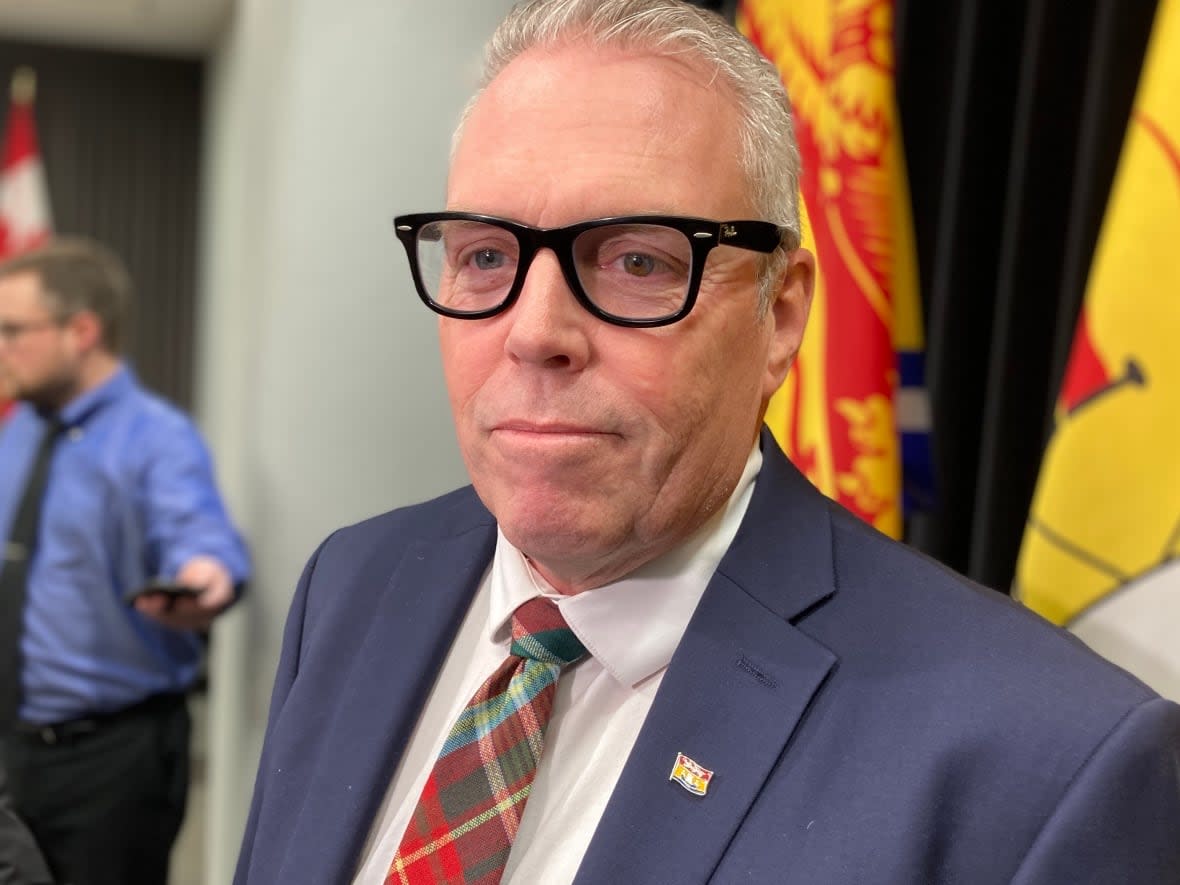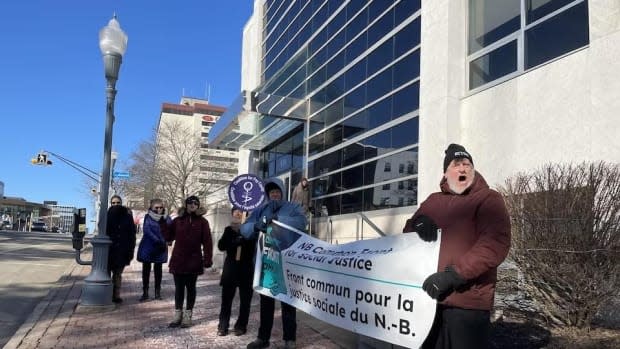After two larger-than-expected surpluses, new provincial budget due Tuesday

The real question about Tuesday's provincial budget will be how inaccurate the Higgs government's projected surplus figure will be.
For two straight years, Finance Minister Ernie Steeves has underestimated how much revenue the province would collect and what that would mean for its bottom line.
And with hundreds of millions of extra dollars in revenue expected again in the coming year, economist Richard Saillant says it would be absurd for the government to lowball its figures for a third straight year.
"I think the government faces an embarrassment of riches," he said.
"Without doing something major in terms of spending growth or tax cuts, they can't declare a modest projected surplus without completely losing the bit of credibility they have left on fiscal forecasting."

Two years ago, Steeves budgeted for a deficit of $244.8 million but, thanks to a rebound in spending after pandemic lockdowns, the year ended with a surplus of $777.3 million — a turnaround of more than a billion dollars.
Last year, Steeves projected a modest surplus of $35.2 million. The province's most recent estimate last month has it at a record $862.2 million.
That's a total inaccuracy of $1.8 billion over two years.
"I think our projections have been along the lines with a lot of the projections in Canada," Steeves told reporters Monday.
"Everybody missed the mark, some more, some less. We were right in the middle of the pack."
Steeves offered only vague clues Monday about where he expects revenues to be in the coming year, never mind what he'll do with it.
"We will continue to be the government we have always been. You've seen how we've reacted over the last five years, the last five budgets, and we will continue with that," he said.
'It's about health'
The Canadian Taxpayers Federation says the government "is certainly in a position to deliver back to taxpayers."
Acting Atlantic director Jay Goldberg says he urged Steeves during a recent pre-budget meeting to cut taxes, particularly the provincial portion of the harmonized sales tax.
Reducing it from 10 to eight per cent would cost $400 to $600 million, within the current year's surplus.
But social activists and public-sector unions say Steeves should instead spend more in areas like housing and health care.

"We're really hoping that this government's going to see that it's not just about wealth, it's about health," said Stephen Drost, the president of the Canadian Union of Public Employees in New Brunswick.
Drost took part in a pre-budget rally in downtown Moncton organized by the Common Front for Social Justice.
They unfurled a banner with the message "For a just and equitable society" from a railway overpass.
"The last three or four budgets really have done nothing for the most vulnerable and the innocent people in our communities," Drost said.
"It really looks like this government has turned its back on everyday people."
Saillant says several factors have contributed to higher than projected revenue — but it's getting harder and harder for the government to claim those factors are unforeseeable.

Higher prices due to inflation means more sales tax revenue, and more people moving to the province means more income tax revenue.
And while both of those may start to level off in the coming year, Saillant says they won't go down.
"If they say that own-source revenues will decline over the next year, we should not take the government too seriously," he said.
"I would view, as a baseline scenario, continued robust revenue growth in the years ahead."
Steeves said Monday it's hard to plan on continuing population growth "because it's a new thing."
Population growth also means higher federal transfer payments, since they are based largely on population.
Statistics Canada now estimates New Brunswick's population at 825,000 people, fuelled mainly by immigration and by people moving here from large Ontario cities to escape soaring housing costs.
"No one knows if or when these flows will stop, but I anticipate that there's still quite a bit of runway for revenue growth coming from that area, and once you have that strong population growth, you have strong transfer growth," Saillant said.
Federal funding hike
On top of growth in transfers based on population, New Brunswick is also in line for a generous increase in federal funding for health care.
Premier Blaine Higgs recently said yes to an offer of a hike in transfers that he estimated would bring the province another $200 million in the coming year.
Plus, there's an agreement for extra money for health innovation worth $900 million over 10 years.
While the year-by-year breakdown isn't known yet, it includes a minimum annual base amount of $50 million for small provinces like New Brunswick.
That should, in theory, translate to at least $250 million more for health care in Tuesday's budget, though Saillant says nothing forces Higgs to spend every dollar he gets.
"It's been extremely hard to impose conditions," he said.


